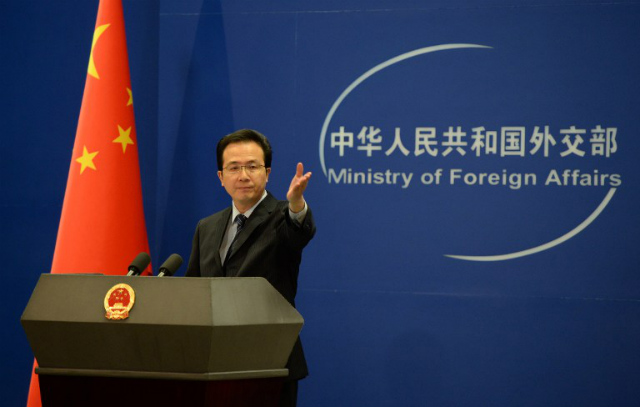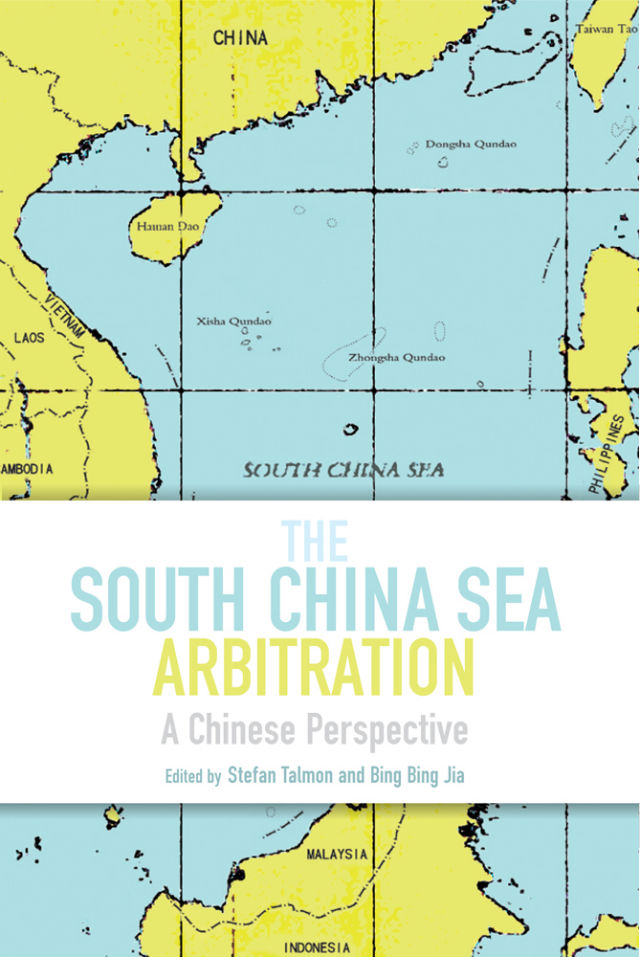Even as it
strongly criticized the Philippines
for “hyping up” the West Philippine Sea (South China Sea) issue, China ’s recent statements against its challenger
show that it has taken the same tack by subjecting the Philippines
This
legal but out-of-court battle against the Philippines
becomes clearer days after the latter submitted a nearly 4,000-page
written pleading against Beijing
“This
effort appears to be aimed at influencing the outcome of the tribunal, as well
as preparing the Chinese public and the international community for any
eventuality,” Sta Romana said in a forum at the Asian Institute of Management
on Wednesday, April 2.
A
Filipino journalist who worked for more than 3 decades in China
“They're
trying to meet our legal arguments with legal arguments. In other words, this
is not just a question of right and might; they are actually trying to meet the
argument head on,” Sta Romana said.
In
a nutshell, China argues that the arbitral tribunal has no
right to hear the Philippines
The disputes between the Philippines and China involve land,
which is not covered by the United Nations Convention on the Law of the Sea
(UNCLOS), the basis of the Philippines' case; and
The disputes involve the delimitation of maritime boundaries,
over which it rejected arbitral proceedings in a declaration under UNCLOS in
2006
Speaking
from a Filipino point-of-view, Sta Romana said: “Basically we say it's a
maritime dispute. If it's waters, it should be under UNCLOS. The Chinese say,
it involves land – islands – and therefore it's a territorial dispute. And if
it's territorial, it cannot be under UNCLOS.” (READ: China rejects PH case, invokes
int'l law)

CITING INT'L LAW.
Chinese Foreign Ministry spokesman Hong Lei says the Philippines
To demolish the Philippines ' case, China
In
fact, even before Manila could publicize its
pleading against Beijing , China sent the Philippine media
on Thursday, April 3, a detailed 12-page position paper against the Philippines West
Philippine Sea .
Two
days before this, on Tuesday, April 1, the Chinese Embassy in the Philippines
Immediately
before and after the memorial was filed on Sunday, March 30, China released two stinging statements against
the Philippines
Book as 'friend of court'

'FRIEND OF COURT.' Published in January 2014, this book aims to 'assist' the arbitral tribunal in the case filed by the
Sta
Romana provided two more examples.
In
January 2013, he said, “two prominent Chinese legal scholars published an
article in the American Journal of International Law.”
The article, “The Nine-Dash Line in the South China Sea: History, Status, and
Implications,” got published at around the same time the Philippines filed its case against China
The
journalist described one of the article's authors, Zhiguo Gao, as a sitting
judge of the International Tribunal for the Law of the Sea who advises top
Chinese officials on maritime strategy.
In
January this year, Sta Romana added, a book especially designed to “assist” the
arbitral tribunal came out.
The
book – The South China Sea Arbitration: A Chinese
Perspective – “does not set out the official position of the Chinese
government, but is rather to serve as a kind of amicus
curiae brief, advancing possible legal arguments on behalf of the absent
respondent,” its Amazon description said.
“Amicus curiae” means
“friend of the court,” a third party whom a court can consult.
“The
book shows that there are insurmountable preliminary objections to the tribunal
deciding the case on the merits, and that the tribunal would be well advised to
refer the dispute back to the parties in order for them to reach a negotiated
settlement,” said the description of the book edited by Stefan Talmon and Bing
Bing Jia.
PH: 'Nothing to add'
In
the face of China 's legal
arsenal, the Philippines
The
Philippines however rebuked China on
Friday, April 4, for its aggressive behavior in the West
Philippine Sea .
“Countries should be judged by their actions, not
by their words,” Philippine Foreign Secretary Albert del Rosario said in a rare
statement.
Before
this, the most that the Philippines
had said was a 600-word statement – as opposed to China
Delivered
by Philippine Foreign Secretary Albert del Rosario, it contained a few details
about the Philippines '
pleading as well as a litany of reasons why the Philippines
More
details could be found in the Philippines Philippines
to invalidate China 's
expansive claim over the West Philippine Sea
as contrary to UNCLOS;
to declare areas such as Panatag (Scarborough) Shoal as
submerged features, not islands as claimed by China
to stop China
to tell China

HISTORIC PLEADING. Foreign Secretary Albert del Rosario (left) and Solicitor General Francis Jardeleza (right) hold a media briefing after the
On Monday, March 31, Philippine President Benigno Aquino III explained: “We are not here to challenge
For the

No comments:
Post a Comment
Note: Only a member of this blog may post a comment.